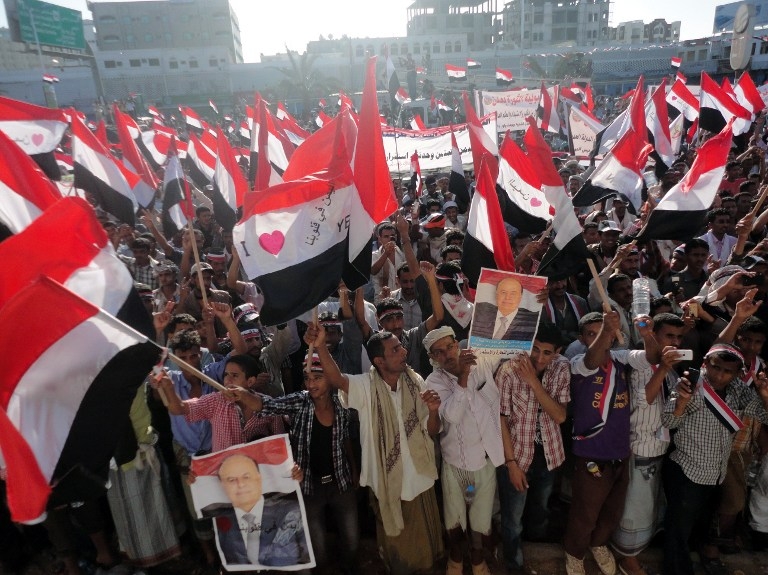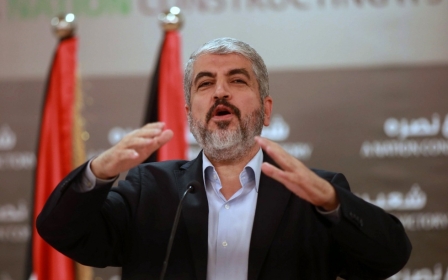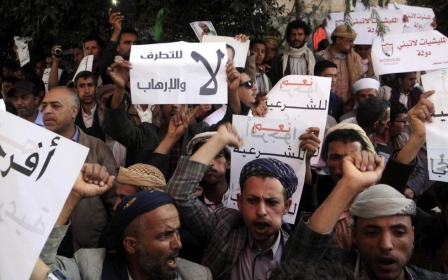Islah party names representatives to Yemen dialogue

Yemen's Al-Islah party has named four leading members – all currently under house arrest by Shiite Houthi militia or in their custody – as its representatives to the ongoing UN-sponsored national dialogue.
In a statement, the Muslim Brotherhood-linked party said it had named former Industry and Trade Minister Mohamed al-Saadi – who is also Al-Islah's deputy secretary-general – and three other members as its representatives to the dialogue.
Al-Saadi has been under house arrest by the Houthi militants for weeks while the three other members were kidnapped by the Shiite group after its gunmen stormed a party office in Sanaa earlier this month.
Earlier this month, UN envoy to Yemen Jamal Benomar initiated dialogue between Yemeni political forces in a bid to mediate a way out of the country's political crisis.
For more than one month, resigned Prime Minister Khaled Bahah, and several members of his cabinet have been detained in their respective Sanaa homes by the Houthis.
Yemen has remained in a state of chaos since last September, when the Houthis took over capital Sanaa, from which they have sought to extend their control to other parts of the country.
On 21 February, President Abd Rabbuh Mansour Hadi fled Sanaa – where he, too, had been placed under house arrest by the Houthis for weeks – to Aden.
Upon his arrival in the southern city, Hadi dismissed as "null" and "illegitimate" all recently-issued Houthi decrees. He also wrote to Yemen's parliament, withdrawing a resignation he had tendered earlier.
Last month, the Houthis issued what they described as a constitutional declaration dissolving parliament and establishing a 551-member transitional council.
The declaration, however, was rejected by most of Yemen's political forces – along with some neighboring Gulf countries – which described it as a "coup against constitutional legitimacy."
Middle East Eye propose une couverture et une analyse indépendantes et incomparables du Moyen-Orient, de l’Afrique du Nord et d’autres régions du monde. Pour en savoir plus sur la reprise de ce contenu et les frais qui s’appliquent, veuillez remplir ce formulaire [en anglais]. Pour en savoir plus sur MEE, cliquez ici [en anglais].




